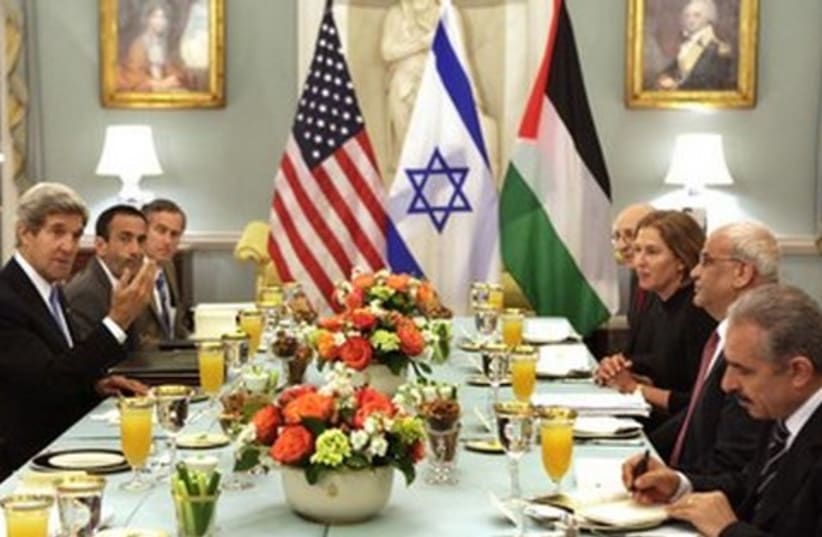Abbas meets with US envoy Indyk as PA officials condemn new settlement plans
PA president meets in Ramallah with Martin Indyk over latest developments surrounding peace talks, which are expected to resume in Jerusalem on Wednesday; PA negotiators say new homes over Green Line "sabotage" talks.
